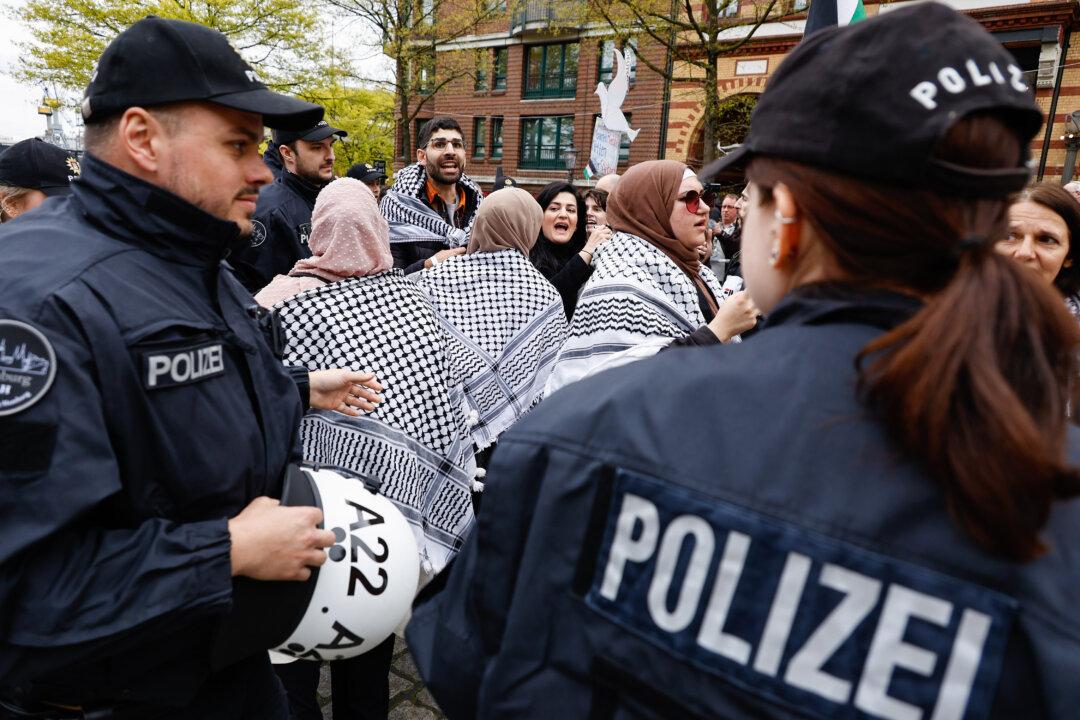More than 1,000 protesters gathered in Hamburg, Germany, over the weekend, with the leader of the group demanding the establishment of an Islamic caliphate in the European country.
A caliphate is a political-religious form of government under the leadership of an Islamic steward with the title of the caliph, or “successor of the prophet,” who is considered a high-ranking leader in the Muslim world.





